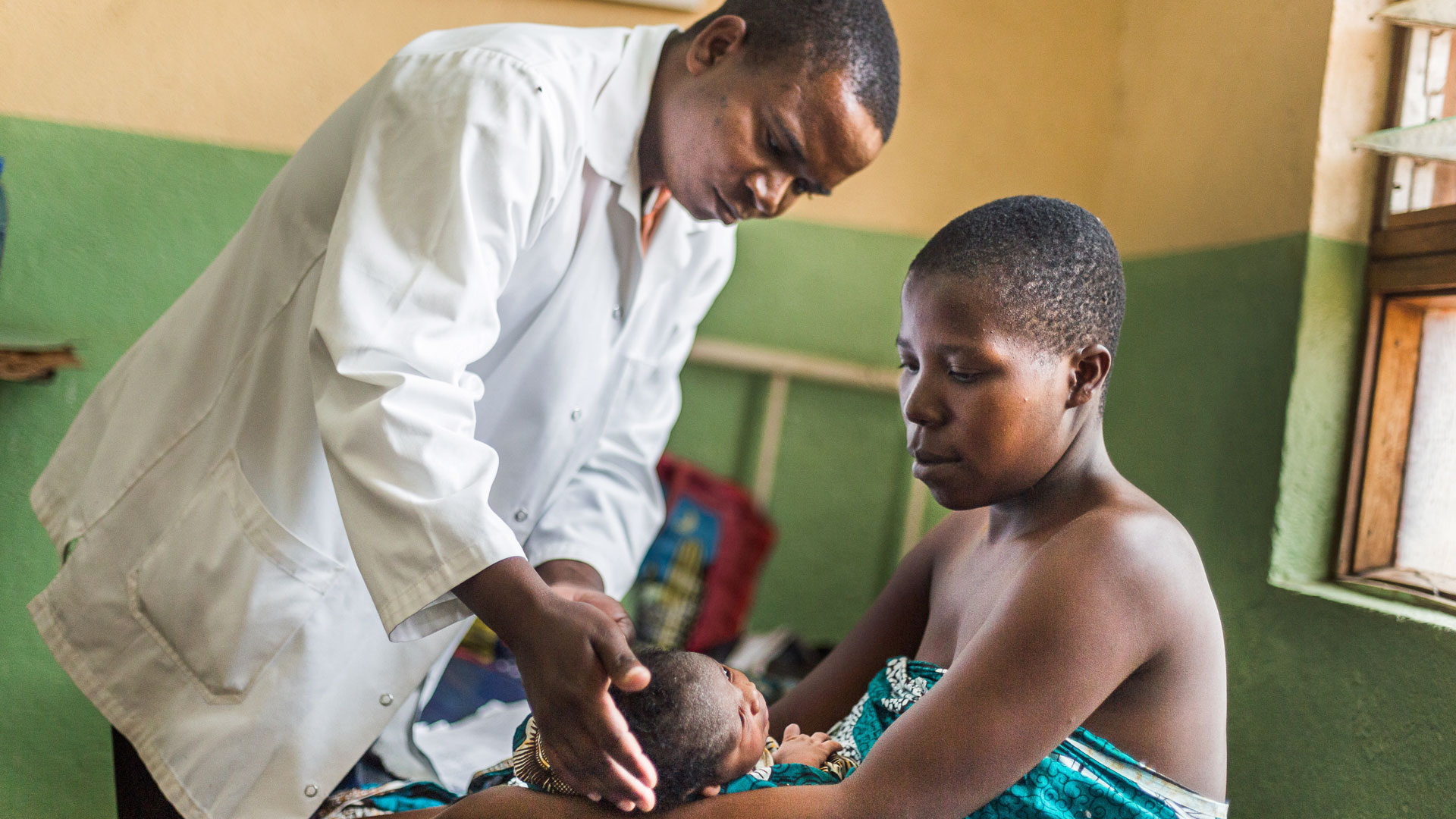Core area “Health, social protection and population dynamics” Medical care and social protection for all
A mother has her child examined by a doctor
Many people, in particular in rural areas, have no access at all to basic health services. This is due not only to a lack of money, but also to the inadequate distribution of funds as well as poor management and a lack of personnel at all levels.
Through German development cooperation, the Malawian Health Ministry and the healthcare authorities in four districts are being supported in their efforts to improve the quality of health services. Apart from basic and further training for medical professionals, this support also includes setting up an information system which enables health data to be collected and evaluated. Uniform quality standards are being developed with German support and are being introduced into healthcare facilities.
In addition, financial support is being provided for the construction, renovation and equipping of health clinics, and for supplying them with vaccines. Support provided within the framework of German development cooperation is also aimed at improving access to information, products and services in the area of family planning and sexual and reproductive health.
Social protection for households living in extreme poverty
Another goal of Germany’s development cooperation with Malawi is to provide better social protection for people living in extreme poverty. To do that, the BMZ is supporting the efforts of the Malawian government to make its social protection system perform better and to improve the way that existing component programmes are coordinated and manage them more effectively.
Furthermore, Germany is contributing financially to a social transfer programme: needy households are regularly receiving payments from the government so that they can afford basic supplies and services. An impact study has shown that the programme is having positive effects on the health, diet and educational attainment of the target group, thereby increasing their chances of being able to earn their own living in the future.
As at: 28/03/2024
